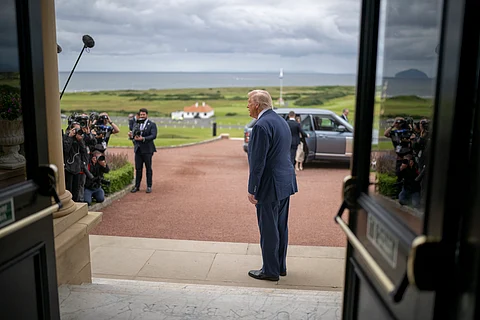

On Sunday, White House economic advisers defended President Donald Trump’s decision to fire Bureau of Labor Statistics (BLS) Commissioner Erika McEntarfer, following a contentious jobs report.
The report revealed a net downward revision of 258,000 jobs for May and June, prompting Trump to accuse McEntarfer of falsifying data without evidence.
U.S. Trade Representative Jamieson Greer, on CBS, noted Trump’s “real concerns” about the data’s accuracy.
Kevin Hassett, National Economic Council director, emphasized the need for “a fresh set of eyes” at the BLS during an NBC “Meet the Press” interview.
The firing has intensified scrutiny over the reliability of U.S. economic data, especially as Trump pushes forward with aggressive tariff policies impacting global markets.
Former BLS leaders and lawmakers criticized the firing, warning it could erode public trust in federal data.
William Beach, a former BLS commissioner, called the accusation of rigged numbers “preposterous,” explaining on CNN that revisions are routine due to updated business data.
Democrats, including Senate Minority Leader Chuck Schumer, accused Trump of targeting McEntarfer to deflect from unfavorable economic news.
At least two Republican senators also expressed concerns, with Sen. Rand Paul telling NBC News that firing statisticians may not improve data accuracy.
The controversy follows Trump’s recent executive order imposing tariffs on countries like Canada and India, complicating global trade dynamics.
The dismissal coincides with broader economic turbulence, including new tariffs on major U.S. trading partners, which have unsettled global stock markets.
Hassett, on NBC, suggested that installing new BLS leadership would enhance data transparency, particularly as further revisions are expected in September.
Critics, including Sen. Alex Padilla on “Meet the Press,” accused Trump of attempting to politicize the BLS, urging Congress to ensure the agency’s independence during future confirmation hearings.
Greer and Hassett indicated that most tariffs would remain, with ongoing negotiations potentially shaping future trade deals.
The debate over McEntarfer’s firing underscores tensions between political agendas and the integrity of economic reporting, with implications for public confidence.